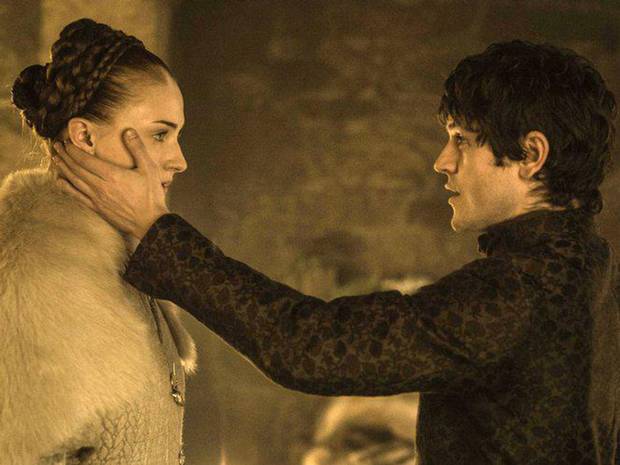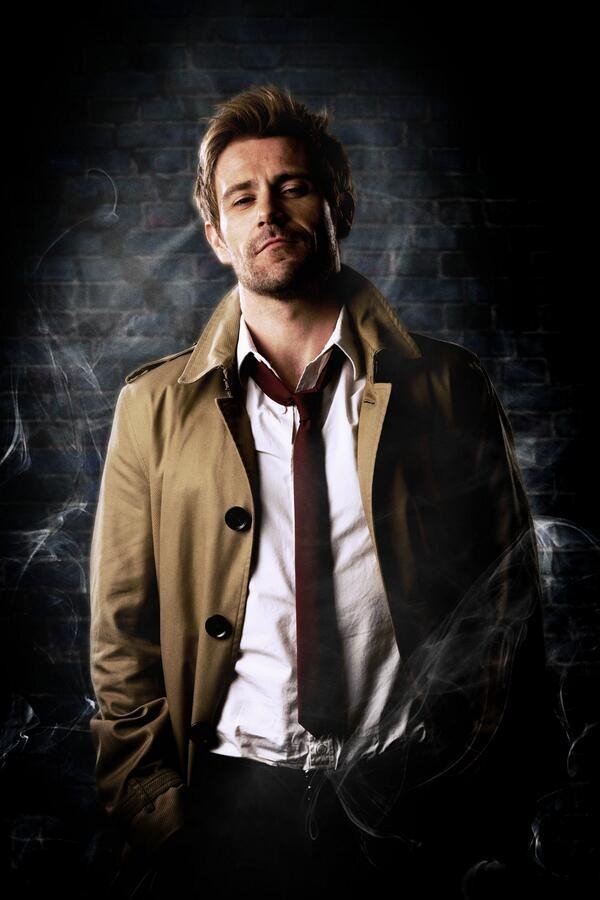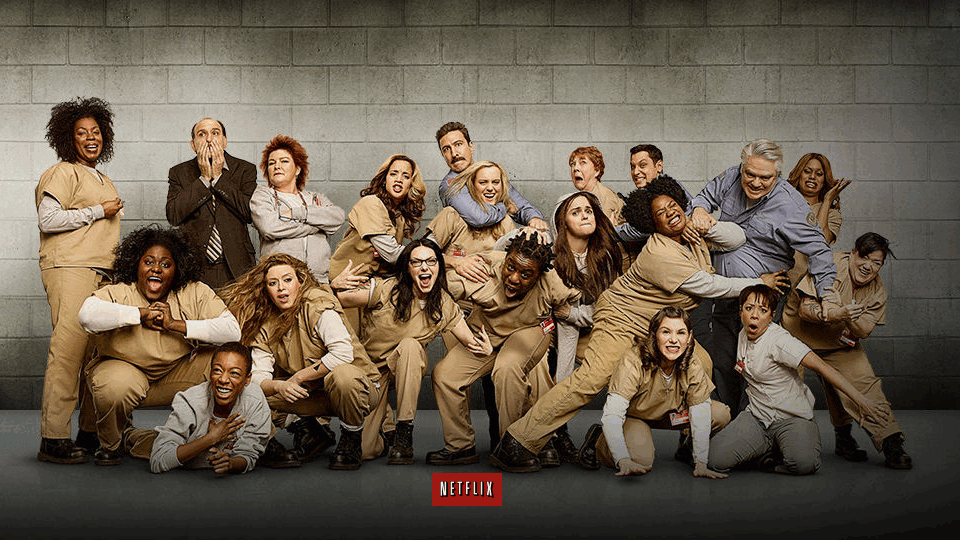[[Note: trigger warnings for mental illness, bipolar disorder, medication, and some spoilers for Hannah Gadsby’s Nanette.]]
These days, I call it burning, but for most of my life, I called it flying.
It’s that feeling when you’re wrapped up in a writing project so hard you look up, and half a day has gone by. You haven’t moved, you haven’t drunk or eaten or talked to anyone. You work and work until your knuckles hurt, and there are words flowing out of you, and you can’t stop until it’s all done. Then you look up, realize what time it is, and fall over because the words are done for the day and you’ve been doing it. You’ve been flying.
That’s what writing when you’re me feels like.
Well, a lot of the time. Some days it’s just normal. I get up, I do my morning routine (take my meds, get some grub, boop the cat, check my email, mess around on Facebook) and then it’s off to the word mines. And on those days, they are indeed the word mines. I check an outline, I write notes, I putter around, I get the words going however I can, tugging that little mining cart up the hill towards those far-off paragraphs and… y’know, this analogy has gotten away from me. I digress.
Those are the hard days at the job because that’s what it is – writing, like making any art, is a job. It’s craft and talent and passion rolled up into one ball. It’s doing a thing you worked hard to learn to do the best you can. You’re capturing those weird little ideas rolling around in your head and making them into words, then lines, then paragraphs, and somehow they’re all supposed to reach out to someone who reads them and make their brains go POOF, I LIKE THIS. No pressure or anything, writer, just take the ephemeral and translate it onto a page. You make it happen as best as you can.
Then, there are the other days. The days when BLEH becomes BANG. The days when something just clicks and comes roaring down the pipe inside my brain and it’s all I can do to get to my computer because it’s ready to go and that’s it. Get out of the way.
 I call it burning these days because that’s what it feels like: like there’s an idea inside me burning its way out. But when I was younger, I called it flying. What I really meant was controlled falling. Like there was a tornado going on and I would leap off something and ride right through the middle of it, all the way up, chasing words. Because that’s what it felt like for me, rolling on through the manic energy that comes with being bi-polar.
I call it burning these days because that’s what it feels like: like there’s an idea inside me burning its way out. But when I was younger, I called it flying. What I really meant was controlled falling. Like there was a tornado going on and I would leap off something and ride right through the middle of it, all the way up, chasing words. Because that’s what it felt like for me, rolling on through the manic energy that comes with being bi-polar.
There’s a lot of folks who equate the manic energy of being bi-polar with the creative spark that drives artists to brilliance. They point to so many great artists in history who lived with mental illness and say, “there it is, that energy, that’s what made them great!”
Except for so many artists, mental illness didn’t make them great. It made them ill. And if they weren’t careful, it made them gone.
 Hannah Gadsby’s blockbuster comedy special “Nanette” was billed as exactly that: a comedy. She was meant to get up on stage, make some jokes, and entertain us all on Netflix. Instead, Gadsby delivered what I can only call a commencement speech for comedians, a bait and switch that took the audience from laughter to silence and ultimately to a standing ovation. Gadsby, a queer comedian with a career going back over ten years, started her performance with a fairly standard routine, drawing in the laughs. Then she started explaining how jokes worked, about how they increased tension and then broke it into laughter.
Hannah Gadsby’s blockbuster comedy special “Nanette” was billed as exactly that: a comedy. She was meant to get up on stage, make some jokes, and entertain us all on Netflix. Instead, Gadsby delivered what I can only call a commencement speech for comedians, a bait and switch that took the audience from laughter to silence and ultimately to a standing ovation. Gadsby, a queer comedian with a career going back over ten years, started her performance with a fairly standard routine, drawing in the laughs. Then she started explaining how jokes worked, about how they increased tension and then broke it into laughter.
Then, she stopped breaking the tension. And just rose it higher and higher by telling the truth.
She spoke to her audience about a lot of things. Her family, and what it was like coming out to them. About violence, about triggering subjects. She broke from the funny parts of her routine a little over halfway through and talked about quitting comedy because she was tired of making people like herself, a lesbian still fighting with some deep shame issues, into a punchline. I watched in spell-bound silence as Hannah Gadsby deconstructed comedy to its most basic building blocks and rebuilt them into a soapbox, a grand forum where she read the audience a monologue of pain and vulnerability, her farewell to wisecracks and the opening of perhaps a new chapter of honest, open speaking in her life. She was out to speak her truth, and by the end, I was in awe.
It was somewhere in the middle where she told people to fuck off when telling artists to “feel” for their art that I felt the ground open up beneath me a little and I cried.

She talked about Vincent Van Gogh, the artist who suffered during his life from mental illness, self-medicated, was treated by doctors and struggled to succeed despite his obvious impossible talent due to his sickness. She talked about her knowledge of his life, thanks to her art history degree, and how he only sold one painting his entire life – not because he wasn’t recognized by his community as a genius, but because he struggled to even be part of a community due to his illness.
And I thought of the flying and the hard days at the word mines. I thought about the days when I heard the tornado in my head and couldn’t make the words get to my fingers. I thought about the frustration, the depression, the difficulties talking to people about what it sounded like inside my skull some days when I could barely pay attention because of the rush of words and ideas.
Hannah Gadsby told people artists don’t have to suffer for their art, and I’ll forever thank her for having the guts to stand up and say that to the world. Because I used to believe it was true.
 When I was sixteen, I was diagnosed with bipolar disorder type 2.
When I was sixteen, I was diagnosed with bipolar disorder type 2.
I came from a family that didn’t really get what being bipolar meant. My parents tried to get it, but when I’d do something irresponsible, it was always because I was ‘bad.’ I tried to explain how it was impossible to keep my whirlwind mind straight sometimes. How it was a battle against depression to get up in the morning and go to class. When I flunked in school, I tried to explain why, when I overcharged my credit card on a manic binge, when I cried for days and couldn’t stop. But those were the bad days. And the good days – those were the days I could take on the world, where no one could stop me, where I was manic off my head. I was out of control.
I went to a therapist when my school suggested it to my parents. The therapist took one look at my behavior and referred me to a psychiatrist, a loud and overbearing man who listened to me talk a mile a minute for fifteen minutes, heard my symptoms, and pulled out a giant prescription pad. I started taking the drugs he gave me but received no explanation about what being bipolar really meant. He never explained what behaviors were unusual, or what could be attributed to the illness, or any coping skills or resources to better understand my situation. He gave me pills and saw me every two weeks. I knew almost nothing about what was going on with me but was even enough to realize I needed more information.
So? I went online.
Because my family didn’t know much about bipolar disorder and my doctor wasn’t telling, I learned a lot from the internet. Those were the wild and wooly early days of the internet, when it was the 90’s and everyone was in AOL chat rooms and the world was a wacky, wacky place. It was on the internet I found a community of roleplayers that eventually led me to the career I have today. It was also where I got a LOT of bad advice about mental illness.
I read a lot of stories about people being overmedicated or given the wrong medication. I heard stories about people being committed by their families if they didn’t hide what was wrong with them. But I especially came across the same story over and over from people who had been medicated. “If you go on the drugs,” they said, “the creative drive goes away. You’ll lose that spark inside you. If you want to be an artist, stay away from medication. It’ll kill your art.”
I didn’t believe it. I was taught doctors were to be trusted. And besides, I knew I needed help. So I took the drugs the doctor gave me and fell into the worst confluence of events you could imagine. Because the medication the doctor gave me DID kill my creativity. It also made me sleep too much, have no emotions whatsoever, destroyed my memory, and made me gain tons of weight. And every time I brought this up to my doctor, his answer was to add another pill to balance out the others or up my dose.
 I didn’t realize it until later, but I had a bad doctor. What I did know was at the height of this medicine dance, I’d spend my days sleeping, or staring at a television, and feeling nothing at all. I couldn’t even cry. But maybe worst of all, I struggled to create. I couldn’t find that spark inside me like I used to, that flying feeling that gave me inspiration. In the moments when I could feel something, it was the overwhelming terror of going back into that stupor once again.
I didn’t realize it until later, but I had a bad doctor. What I did know was at the height of this medicine dance, I’d spend my days sleeping, or staring at a television, and feeling nothing at all. I couldn’t even cry. But maybe worst of all, I struggled to create. I couldn’t find that spark inside me like I used to, that flying feeling that gave me inspiration. In the moments when I could feel something, it was the overwhelming terror of going back into that stupor once again.
This went on from the time I was seventeen, when I was so messed up I dropped out of high school, until I was nearly 19. In between, I struggled to get my GED so I could at least get into college and proceeded to flunk there too due to the medication’s impossible weight on my mind. I went through so many ridiculous emotional issues I can’t describe, but all of it was through a curtain of medication so thick I can barely pull up memories from that time.
The times my emotions would push through was during what I discovered later were hypomanic phases, mood swings so strong they butted through the haze and made me wildly unstable. All the while I struggled to get my life in order, and every time I did, it was under a fog of badly managed medication, or through the adrenaline of mania so strong I could barely function. I didn’t understand I was badly medicated, of course. All I knew was everything was falling to pieces, all the time, and I couldn’t feel a solid, real emotion long enough to care.
So in 2002, in one of those moments of emotional lucidity, I made a decision to stop taking my meds. I suddenly thought: the internet is right, this is a horrible, horrible mistake. I trusted my experience and my terror and I stopped taking my meds.
And well, to quote one of my heroines from the time, Buffy:

What followed were ten years of the roughest, rockiest, unbelievably manic, altogether difficult experiences of my life. I had bouts of going back on medication, but would always stop for one reason or another. I’d make excuses but each time it was the same thing: I convinced myself I didn’t feel right on the medication. That I couldn’t feel that creative spark I so relied on as part of my life. I was afraid of going back to that medically-induced haze I’d been in before. I hid from it and kept riding the tornado, every day. And like any tornado, my instability left chaos and destruction in its wake.
I can’t say I regret those ten years. They taught me a lot. I regret a lot of the horrible decisions I made, the people I hurt, the situations I got into where I got ripped up myself. I have memories I’ll never forget, instances of realizing too late I’d gotten into something because of my mania that led ultimately to disaster.
But I remember the creative highs. The way I could just fly like the wind and produce 12,000 words in a night. How I could map out entire novels, series of books, all the things in the world I thought I could create. I wrote papers, read whole book series, stayed up for days on end, played role-playing games from morning until night, and never, ever saw anything wrong with where I was in life. Because I was living that artists life and I thought, hey, this is me. This is who I am.
I know now the truth: that was the illness talking. The living high on life, throwing caution to the wind, tornado voice? Is the manic voice. And unless tempered with medication and coping mechanisms can lead to disaster.
From 2002 until 2012 I remained largely unmedicated. And those ten years are, in hindsight, an unspoken cautionary tale of someone not flying, but falling without recognizing the drop in altitude. A tale of someone on a corkscrew through rough weather, catching fire all the way down.

I went to grad school in 2012 and thank god for so many reasons that I did. It’s not even my education I laud when I think of those years, but a single day in November 2012. I’d only been in classes for two months and already I was starting to lose it from the stress. The day I broke down with a massive anxiety attack after a critique from a teacher, hiccuping with tears and hyperventilating in a bathroom, I walked across the street to the health clinic and got an appointment with a mental health counselor. There, a very nice man named Bob talked to me about my experiences, about what I knew about bipolar disorder.
Bob told me some truth about where I was at and what I needed. He said he was surprised I’d gotten as far as I did going the way I was. He listened to my fears about going on meds and what had happened in the past. Then he calmly explained how he was going to give me medication and we’d work together to find what worked.
The first day I took medication, I woke up in the morning and the tornado was quieter. Not quiet, but less a twisting funnel of noise and more of a loud echo. I called up someone who was then a friend (who had experience with the medication I’d started taking) and broke down crying. I asked him: is this what normal felt like? I had no idea it would get even better.
Six years later, I’ve never been off my medication a single day. And I’ve graduated from grad school, survived a brain surgery and being diagnosed with two serious chronic illnesses, ending up using a wheelchair, running my own business, becoming a writer, and too many personal ups and downs to count. Each of them I tackled with a surety in myself I never could have before, because I was no longer screaming through a tornado all the time. More importantly, I’ve spent those years creating games and writing work I’ve made with deliberateness and careful consideration. When I create, it was no longer controlled falling, but dedicated flight on a controlled course. Well, most of the time.

I won’t say everything became perfect after I started medication because I won’t let blogging make a liar out of me. Being bipolar is a constant system of checks and balances. These days, I fight against needing my medication adjusted a lot, against depression and anxiety, mania and hypomania. I still end up flying some days, sometimes for days at a time, because as time goes on the body changes and you have to adjust to new needs, new doses, new medication.
Coping mechanisms change, life situations go ways you never expected, mania and depression rear their ugly head. But the day I went on medication was one of the greatest days of my life, because it was the day my creative spark stopped becoming an excuse to keep putting up with an illness that was killing me.
I did some research online (now responsibly!) about artists who were known to have fought with mental illness. Google it some time and it’ll be a stark look into some suffering for art you might not know about. People know about Van Gogh, but what about Beethoven and David Foster Wallace, Georgia O’Keefe and Sylvia Plath, Goya and Cobain, Robin Williams and Amy Winehouse. I did research and discovered artists like Mariah Carrey, Demi Lovato, Catherine Zeta Jones, Vivien Leigh, Russell Brand, Linda Hamilton, and of course Carrie Fischer all have/had bipolar disorder. Their stories, their struggles, are well known.
I read books about people theorizing about the connection between mental illness and creativity and shake my head. I don’t need to know the connection, because if there is one, it doesn’t matter to me. I take my medicine and work my craft at the same time because I don’t need to suffer as an artist. I don’t need the mania to take flight and reach inspiration. I can do that on my own.

Mental illness and the struggle against it is one I’ll tackle for the rest of my life. But to quote Hannah Gadsby: “There is nothing stronger than a broken woman who has rebuilt herself.” The day I started on my journey to getting better by taking medication, by denying the world my suffering and instead gave myself permission to live healthier while making art, was the day I started rebuilding myself into the strongest version of me. Every day, one more brick, with every word I write, I build myself higher.
And so I offer a special thanks to Hannah Gadsby, and her brave “Nanette,” for reminding me of how important that choice was to my life. For reminding me I owe nobody my suffering to make what is precious to me, and that a creator doesn’t need to push aside their own mental health to be hailed as an artist. Thank you, Hannah, for your strength. May you find your inspiration wherever you walk.

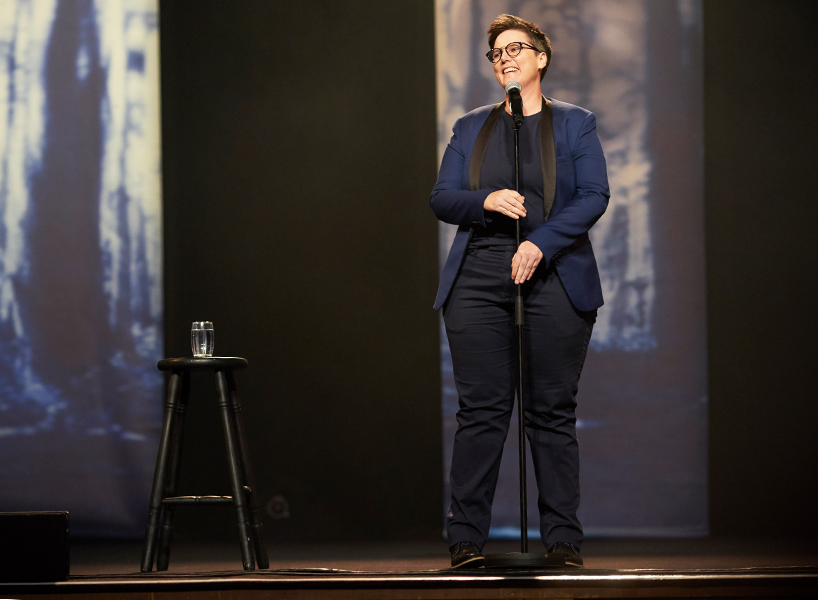









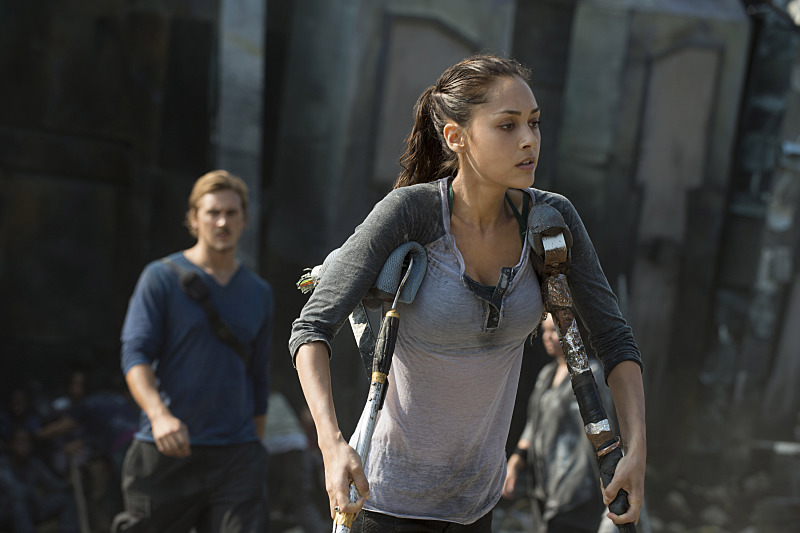
 This personal look into how reliant I am on society to stay alive has been an eye-opener for me. In a world were destabilization is so much closer than we ever thought possible, I look for solace to literature to relax, and realize how many of the narratives I enjoyed before leave a bitter taste in my mouth. I reread The Stand and came to Stephen King’s chapter where he outlined all the people who died in the collapse of society post- Captain Tripps. And after so many of them, he wrote: “No great loss.” It always gave me the shivers. I’d be one of those people, probably, slowly dying in the face of the end. No adventure to go meet Mother Abigail. Just toodles, and hoping my life didn’t earn me the “no great loss” title in the end.
This personal look into how reliant I am on society to stay alive has been an eye-opener for me. In a world were destabilization is so much closer than we ever thought possible, I look for solace to literature to relax, and realize how many of the narratives I enjoyed before leave a bitter taste in my mouth. I reread The Stand and came to Stephen King’s chapter where he outlined all the people who died in the collapse of society post- Captain Tripps. And after so many of them, he wrote: “No great loss.” It always gave me the shivers. I’d be one of those people, probably, slowly dying in the face of the end. No adventure to go meet Mother Abigail. Just toodles, and hoping my life didn’t earn me the “no great loss” title in the end.








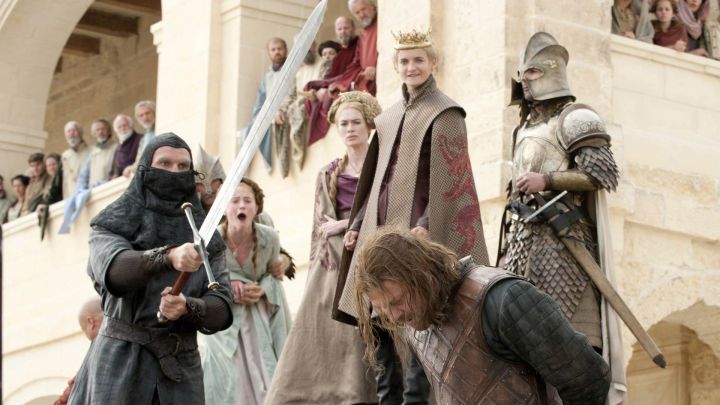









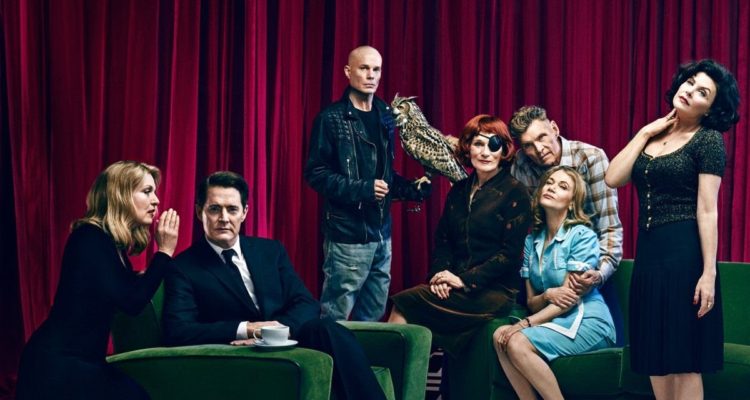

 I watched everyone flip about Idris Elba being cast as Roland because of the color of his skin and rolled my eyes. They made a great choice there, I thought, choosing a man of color for such a traditionally Clint Eastwood, square jaw white guy role. He would rip a hole in the scenery with Matthew McConaughey as The Man In Black. He would be the iconic man on his way to the Tower. He had the perfect gravitas. I would recite the Gunslinger Creed over my popcorn bucket and watch him do the reloading trick and be so happy. I got my friends together, those who were big fans and who weren’t, and I made a day of it. As I said to my friends, to a fan like me, it was like going to church.
I watched everyone flip about Idris Elba being cast as Roland because of the color of his skin and rolled my eyes. They made a great choice there, I thought, choosing a man of color for such a traditionally Clint Eastwood, square jaw white guy role. He would rip a hole in the scenery with Matthew McConaughey as The Man In Black. He would be the iconic man on his way to the Tower. He had the perfect gravitas. I would recite the Gunslinger Creed over my popcorn bucket and watch him do the reloading trick and be so happy. I got my friends together, those who were big fans and who weren’t, and I made a day of it. As I said to my friends, to a fan like me, it was like going to church.


